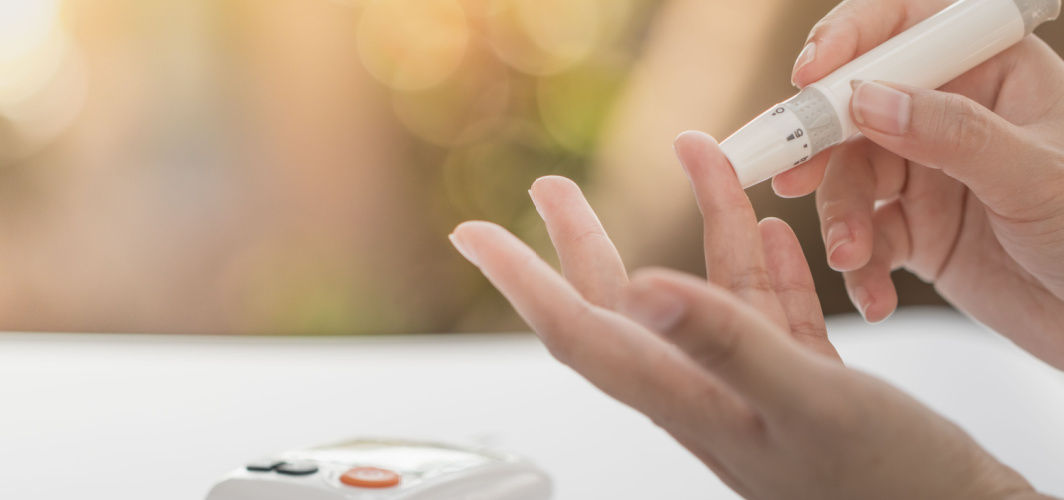Diabetes Management
Exercising Later In The Day Can Help Control Blood Sugar Better. Here's How!
3 min read
By Apollo 24|7, Published on - 09 January 2023, Updated on - 01 June 2023
Share this article
0
27 likes

In general, exercising at any point of the day is believed to be beneficial to your body. Moreover, it is a proven fact that just by losing 5% of your body weight, you can improve insulin resistance and reduce your risk of developing diabetes. Let us understand how exercise can help you control blood sugar levels and if there's a best time to reap maximum benefits.
What Is Insulin Resistance? How Does Exercise Help?
Insulin resistance is a hallmark of type 2 diabetes, which can also affect those suffering from type 1. Insulin resistance means that the cells in your body do not respond to insulin (a hormone that carries glucose into the cells) appropriately and cannot use glucose to generate energy. As a result, glucose remains in your blood without being absorbed by the cells. Eventually, this high glucose level in the blood results in diabetes.
However, diabetes is called a lifestyle disease as your diet and exercise can play an important role in saving you from the grasp of this disease and its complications.
You can decrease insulin resistance and improve insulin sensitivity by making small modifications to your lifestyle.
When you perform even a little physical activity like walking, running or gardening:
- Your muscles and liver release glucose as fuel to generate energy.
- These activities also help utilise the stored form of glucose (glycogen) in the cells.
- The circulating glucose in the blood readily enters the cells of your body and gets utilised during exercise.
In this way, exercise can help with blood glucose control, which in turn, can help improve the insulin sensitivity of the cells in your body.
When Is the Best Time to Exercise?
While we have established that exercising can help improve insulin resistance, the next question that comes to our mind would be; when should you exercise? Is there any best time to exercise?
According to a recent study, exercising during the afternoon resulted in an 18% reduction in insulin resistance, while doing the same in the evening resulted in a 25% reduction compared with spreading activity throughout the day.
The researchers also found that moderate to vigorous physical activity reduced both insulin resistance and liver fat content.
Scientists stated that exercising at any point of the day can be beneficial, however, there is a positive link between exercising during the evening and insulin resistance. They further stated that in-depth research is necessary to confirm the benefits of exercising later in the day in managing diabetes.
FAQs
1. Is it safe to exercise with diabetes?
Yes, it is safe to exercise if you have diabetes. Furthermore, it is highly recommended as physical activity can reduce insulin resistance and help control blood sugar levels.
2. Does walking after eating manage diabetes?
Yes. Slow or brisk walking after eating a meal can help reduce insulin resistance. However, it is advised to wait for at least 3 to 4 hours before performing any strenuous exercise.
3. How often should you exercise to reduce weight, if you have diabetes?
You should exercise for at least 30 minutes a day for 5 days a week to improve your overall health and control your blood sugar level.
4. Can diabetes be cured by exercise?
Diabetes cannot be cured, but it can be effectively managed with lifestyle changes such as exercise and diet.
If you need expert guidance,
Consult An Apollo Diabetologist
You can also manage your diabetes like a pro with Apollo 24|7's 12-week empower programme.
Medically reviewed by Sonia Bhatt.
Diabetes Management
Leave Comment
Recommended for you

Diabetes Management
Should Non-Diabetic People Check Their Blood Sugar Levels?
Monitoring blood sugar levels is typically associated with diabetes management, but it can also offer benefits to non-diabetic individuals. Regular checks can aid in the early detection of conditions like prediabetes, making it possible to take proactive measures. Those with a family history of diabetes can use monitoring to assess the risk factors and implement lifestyle changes. While non-diabetics do not need frequent monitoring, occasional checks can serve as a valuable tool for early detection, prevention, and overall health awareness.

Diabetes Management
Diabetic Foot: Can it be Prevented?
The development of diabetic foot can be prevented through various measures. Effective prevention includes regular foot care, such as daily inspection and cleaning, wearing comfortable and proper-fitting shoes, managing blood sugar levels, controlling blood pressure and cholesterol, maintaining a healthy lifestyle, avoiding smoking and alcohol consumption, and seeking immediate medical attention for any foot issues.

Diabetes Management
Gestational Diabetes: Symptoms, Causes, Diagnosis, Treatment & Prevention
Gestational diabetes is a condition characterised by high blood sugar levels during pregnancy. It usually occurs between the 24th and 28th weeks of pregnancy and can have implications for both the mother and baby. Seeking early healthcare, understanding the symptoms, diagnosis, and treatment, as well as managing potential complications of gestational diabetes are essential for a healthy pregnancy.
Subscribe
Sign up for our free Health Library Daily Newsletter
Get doctor-approved health tips, news, and more.
Visual Stories

8 Fruits That are Incredibly Healthy for Diabetes
Tap to continue exploring
Recommended for you

Diabetes Management
Should Non-Diabetic People Check Their Blood Sugar Levels?
Monitoring blood sugar levels is typically associated with diabetes management, but it can also offer benefits to non-diabetic individuals. Regular checks can aid in the early detection of conditions like prediabetes, making it possible to take proactive measures. Those with a family history of diabetes can use monitoring to assess the risk factors and implement lifestyle changes. While non-diabetics do not need frequent monitoring, occasional checks can serve as a valuable tool for early detection, prevention, and overall health awareness.

Diabetes Management
Diabetic Foot: Can it be Prevented?
The development of diabetic foot can be prevented through various measures. Effective prevention includes regular foot care, such as daily inspection and cleaning, wearing comfortable and proper-fitting shoes, managing blood sugar levels, controlling blood pressure and cholesterol, maintaining a healthy lifestyle, avoiding smoking and alcohol consumption, and seeking immediate medical attention for any foot issues.

Diabetes Management
Gestational Diabetes: Symptoms, Causes, Diagnosis, Treatment & Prevention
Gestational diabetes is a condition characterised by high blood sugar levels during pregnancy. It usually occurs between the 24th and 28th weeks of pregnancy and can have implications for both the mother and baby. Seeking early healthcare, understanding the symptoms, diagnosis, and treatment, as well as managing potential complications of gestational diabetes are essential for a healthy pregnancy.